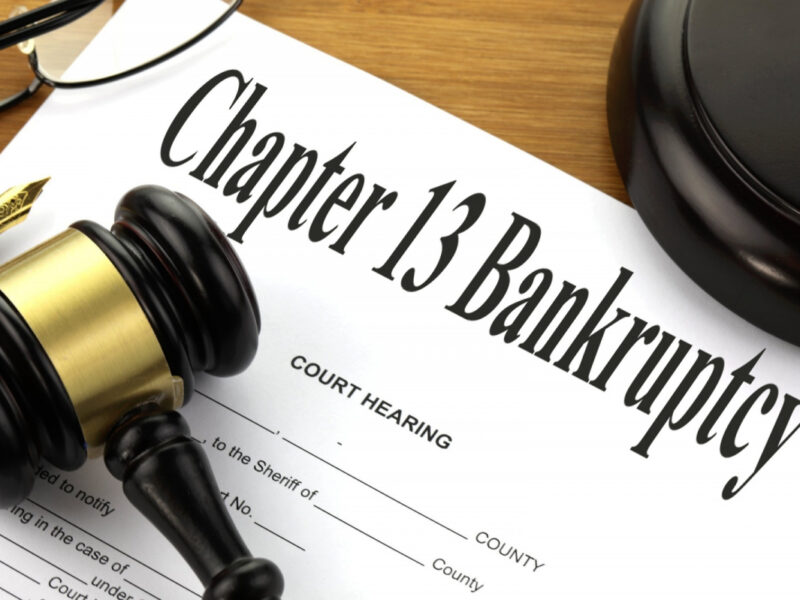Applicable Law and Rules.
Generally, the court will grant the debtor a discharge of all debts provided for by the chapter 13 plan or disallowed under section 502 of the Bankruptcy Code “as soon as practicable” after the debtor completes all payments under the plan, other than payments to holders of certain long-term claims. 11 U.S.C. § 1328(a). The discharge may be delayed or waived, however, in the following circumstances:
• Domestic Support Obligations. A debtor who is required by a judicial or administrative order, or by statute, to pay a domestic support obligation must certify that all payments due under the order or statute are current before the discharge can be issued. 11
U.S.C. § 1328(a).
• Section 522(q). The court may not issue the discharge until it has determined that there is no reasonable cause to believe (1) that section 522(q) of the Code may apply, and (2) that there is a pending proceeding of the type described in that section. 11 U.S.C. § 1328(h). Section 522(q) applies if (1) the debtor has claimed an exemption under state or local law in more than $136,8751 worth of property of the type described in section 522(p)(1) of the Code and (2) there is pending a proceeding in which the debtor may be found guilty of one of the types of felonies described in section 522(q)(1)(A) or found liable for a debt of the kind described in section 522(q)(1)(B).
An individual debtor who claims an exemption under state or local law in more than
$136,875 of section 522(p)(1) property must file a statement as to whether section 522(q) applies. Bankruptcy Rule 1007(b)(8). The court may determine that section 522(q) does not apply if the debtor has not filed a section 522(q) statement and no party has filed a motion requesting that the court make a determination under section 522(q) or section 1328(h). If the debtor is required to file the section 522(q) statement, the court may not issue the discharge until at least 30 days after the statement is filed. Rule 4004(c)(3).
• Voluntary Waiver. The debtor may waive the discharge. In order to be effective, the waiver must be in writing and signed by the debtor after the case is filed. The waiver also must be approved by the court. 11 U.S.C. § 1328(a).
Section 1328(a) excludes some debts from the discharge. The exceptions include:
• Long-term debts specified in section 1322(b)(5) of the Code;
• Debts specified in section 523(a)(2), (3), (4), (5), (8), and (9);
• Certain tax debts specified in sections 523(a)(1)(B), (1)(C), and 507(a)(8)(C);
• Debts for most fines, penalties, forfeitures, or criminal restitution obligations; and
• Debts for restitution, or damages, awarded in a civil action against the debtor as a result of malicious or willful injury by the debtor that caused personal injury to an individual or the death of an individual.
Examples of some of the common types of debts excluded from the discharge are listed on the back of Form 18W.
Section 523(c) states that the debtor shall be discharged from certain kinds of debts specified in section 523(a) unless, on request of the creditor to whom such debt is owed, the court determines that the debt is excepted from discharge under sections 523(a)(2), 523(a)(4), or 523(a)(6) of the Code. A complaint to determine the dischargeability of a debt in a chapter 13 case pursuant to section 523(c) generally must be filed not later than 60 days following the first date set for the meeting of creditors. Rule 4007(c). The court may extend the time but the motion to extend must be filed before the time has expired.
Section 524 of the Code sets out the effect of a chapter 13 discharge.
Rule 4004(f) provides for the registration of a certified copy of the discharge in another district.
Section 1328(e) of the Code states that a party in interest may request revocation of a chapter 13 discharge if the discharge was obtained through fraud and the requesting party did not know of the fraud until after the discharge was issued. The request must be filed before one year after entry of the discharge.
General Information for the Clerk.
This form is for use in a chapter 13 case in which the debtor has completed payments under the confirmed plan. Form 18WH may be used if the debtor receives a so-called “hardship” discharge pursuant to section 1328(b) of the Code before completing the plan payments.
It is contemplated that the discharge will be prepared by the clerk, rather than by a party in interest. The caption of a discharge for joint debtors should include all names used by each of the joint debtors within the last eight years and the last four digits of each debtor’s social- security number or individual taxpayer-identification number.
While Rule 2002 permits the court to order a person other than the clerk to give a number of types of notices, Rule 4004(g) requires the clerk to promptly mail a copy of the final order granting discharge to the debtor, all creditors, and parties in interest. The 1983 Advisory Committee Note to Rule 4004 states that notice of the discharge should be mailed promptly after the order becomes final “so that creditors may be informed of the entry of the order and of its injunctive provisions.”
